PostTime:8/10/2022
The "Guangdong-Technion Leadership in Science and Technology Lecture Series" has been held at GTIIT to provide a platform for high-impact dialogues that explore topics that are pertinent to our faculty, our students, and our community.
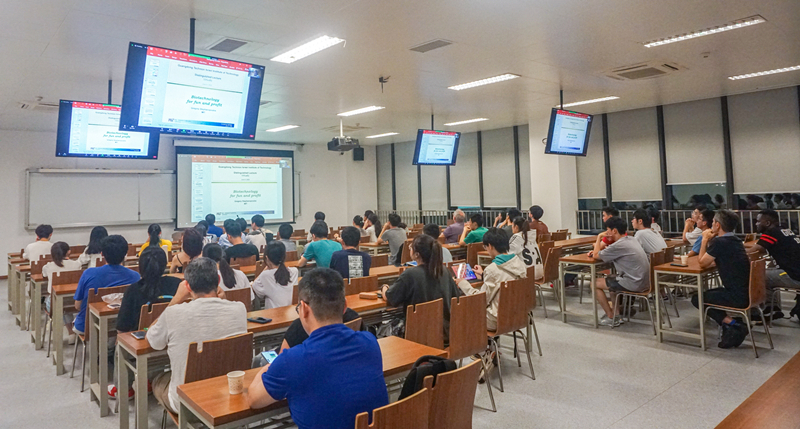
The "Guangdong-Technion Leadership in Science and Technology Lecture Series" invited Prof. Gregory Stephanopoulos, Member of the National Academy of Engineering (US) and Professor of Chemical Engineering and Biotechnology at MIT, to give the lecture for GTIIT teachers and students. Many students from Technion also took part in this lecture online.
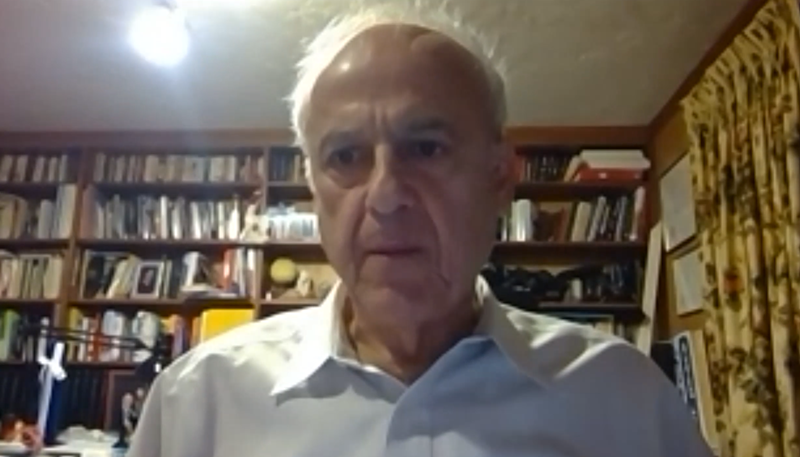
Biotechnology is rapidly coming of age as enabling technology for the production of biofuels and biobased chemicals. In this task, it is aided by critical advances in Metabolic Engineering that engineers microbes into little chemical factories capable of converting renewable feedstocks to a variety of products.
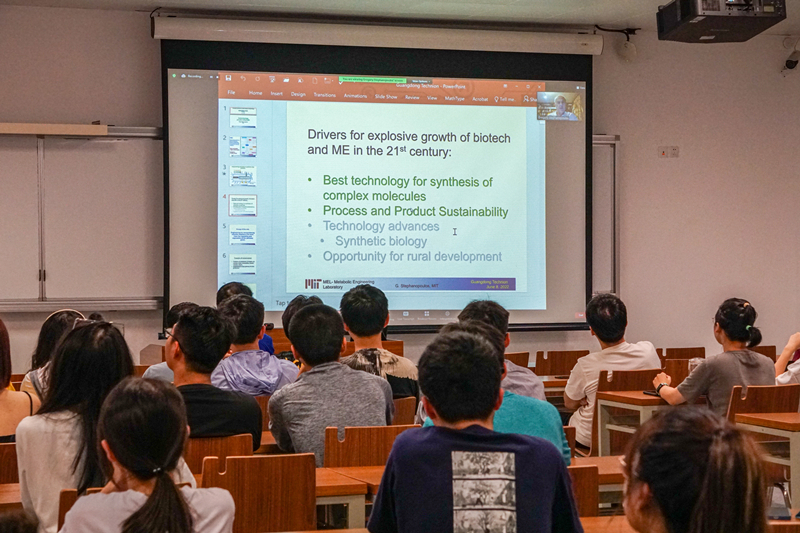
This lecture was started by a picture showing how chemical compounds divide work in a cell. While in earlier years, this application was limited to specialized chemicals and pharmaceutical products, recent advances in metabolic engineering and synthetic biology have expanded the portfolio of biotechnological applications beyond specialty products and into the domain of commodity chemicals. Prof. Gregory Stephanopoulos said, "As the latter has been traditionally the realm of the chemical process industry using fossil fuels as feedstocks, we are witnessing a process of creative destruction whereby one manufacturing technology based on chemistry is gradually being replaced by another based on biology. Process and product sustainability is a major driver of this development."
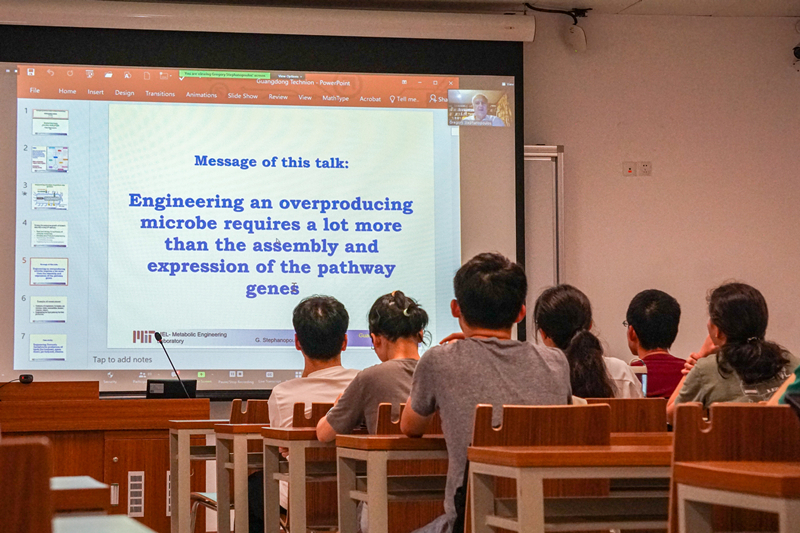
Engineering microbes, however, for real industrial applications requires more than just the assembly of the genes comprising a biosynthetic pathway. The capacity of the pathway must be assessed vis-a-vis alternative routes, along with its thermodynamics and kinetic bottlenecks, and its performance in bioreactor environments evaluated. Prof. Gregory Stephanopoulos said, "In this context, alternative feedstocks should be evaluated to identify the one that can be fully utilized for the production of the target product with minimal byproduct formation. These concepts and tools constitute the essence of metabolic engineering."
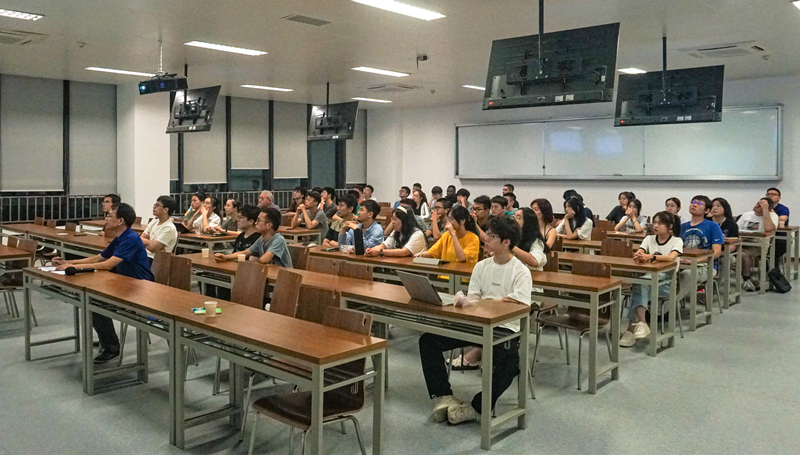
Prof. Gregory Stephanopoulos took the engineering of oleaginous yeast as an example to illustrate the production of lipids (biodiesel) and alkanes, and introduced the synthesis of isoprenoid products for the production of fragrances, flavors, vitamins and pharmaceuticals. "Metabolic engineering is going to be dominant in the future, because it is the only technology we have for the conversion of renewable feedstocks into valuable chemicals and fuels.
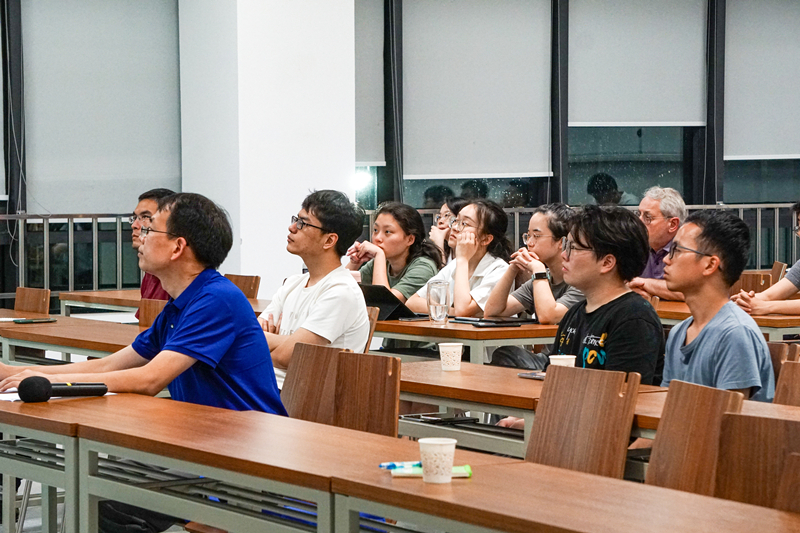
At the end of the lecture, Prof. Gregory Stephanopoulos gave his advice to GT students on how to study chemistry. "Please keep in mind that the chemistry you learned not only exists in the chemical system, it can also be used in many other engineering projects, for example, my group. So understanding the crossing between different subjects, and bearing this mindset to consider what you are learning will give your a broad and advanced horizon."
Text: Liu Huayi, GTIIT News & Public Affair
Photos: Zhong Haoran, GTIIT News & Public Affairs
© GUANGDONG TECHNION-ISRAEL INSTITUTE OF TECHNOLOGY | 粤ICP备17036470号
